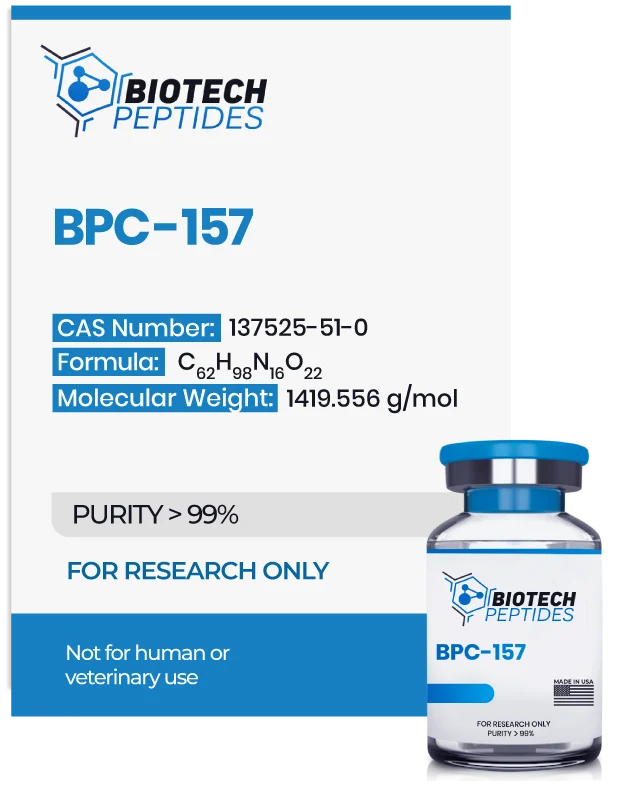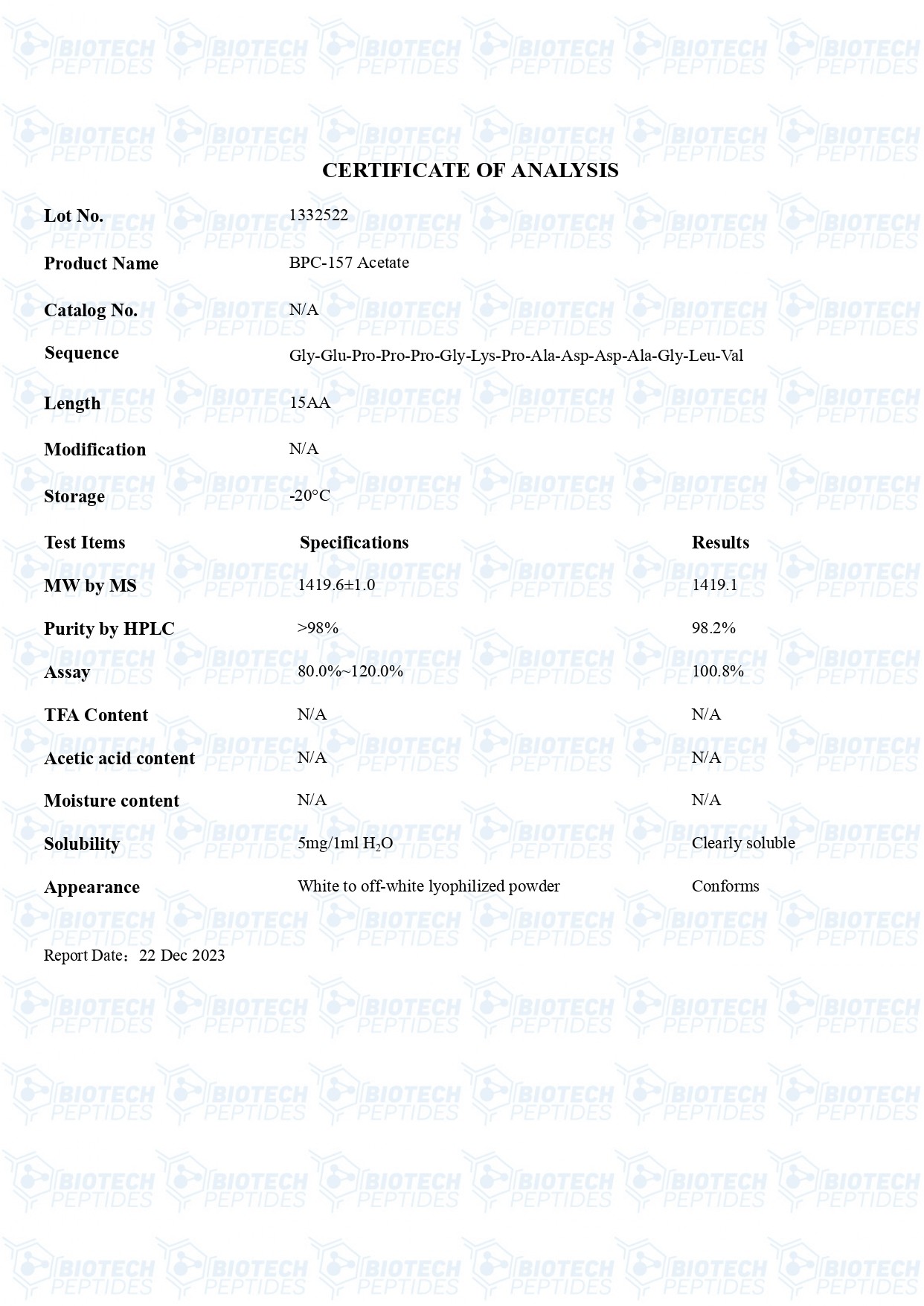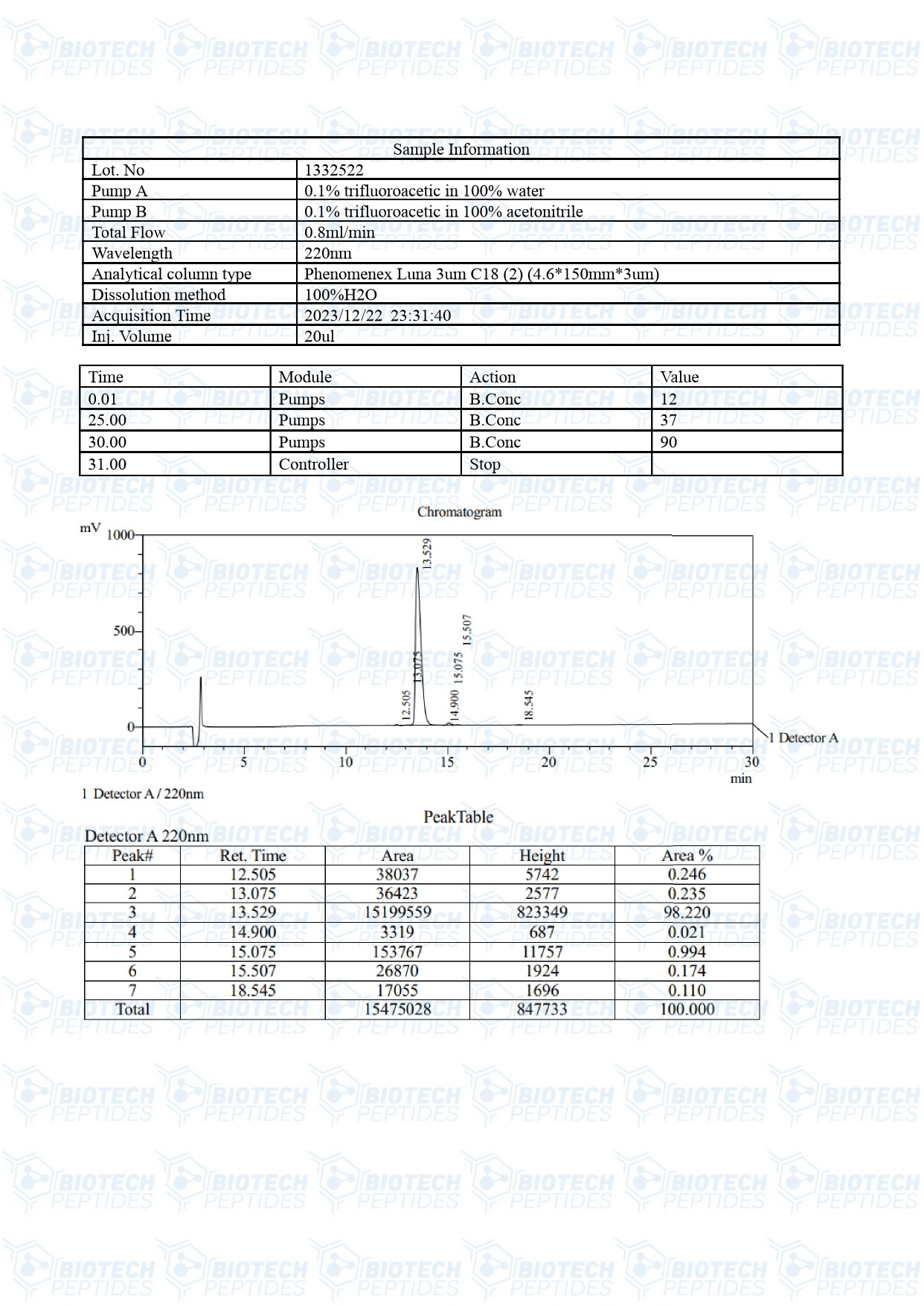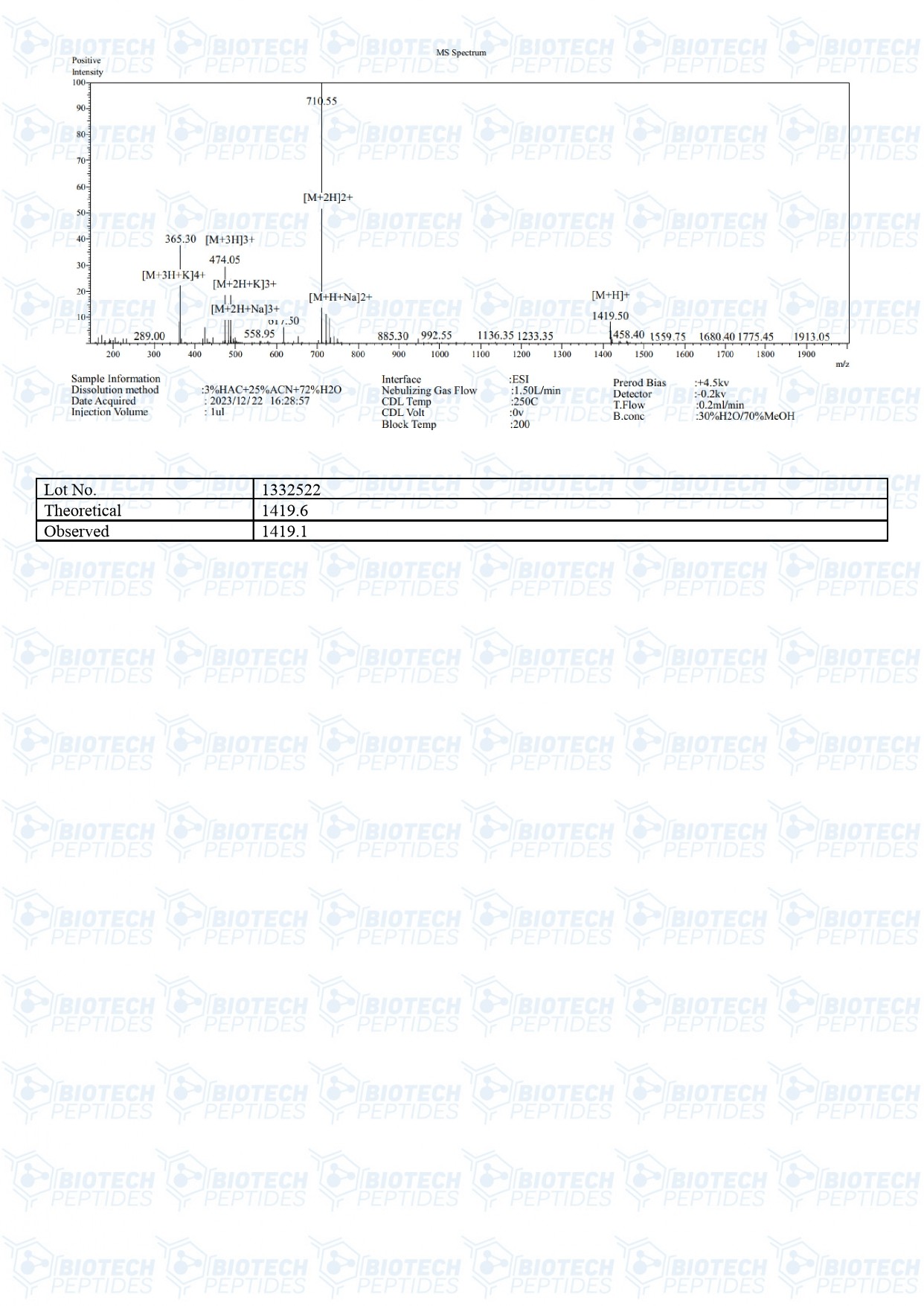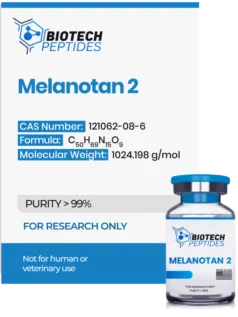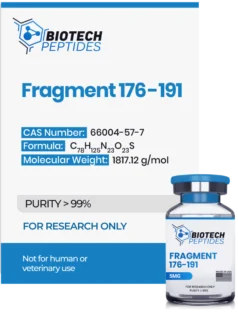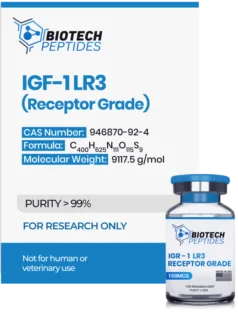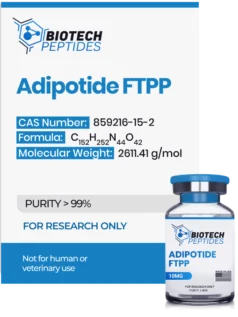BPC-157 (5mg & 10mg)
$52.00 – $92.00
BPC-157 peptides are Synthesized and Lyophilized in the USA.
Discount per Quantity
| Quantity | 5 - 9 | 10 + |
|---|---|---|
| Discount | 5% | 10% |
| Price | $49.40 – $87.40 | $46.80 – $82.80 |
FREE - USPS priority shipping
BPC-157 Peptide
BPC-157, Body Protection Compound-157, is obtained from the parent protein Body Protection Compound (BPC). BPC is a naturally occurring protein in the digestive tract.[1] BPC -57 is a penta-decapeptide made up of 15 amino acids, and is derived from a stretch of endogenous BPC identified and isolated from gastric juice. Animal studies have suggested its potential in supporting tissue repair processes in muscle, tendon, and torn ligaments. It may further protect organs and potentially prevent gastric ulcer development.[2] Sikiric et al. noted that there was "a strong protection, noted following [exposure to] BPC 157." BPC-157 also has the potential to enhance the function of the digestive tract and prevent against irritable bowel syndrome (IBS), gastrointestinal cramps, and Crohn’s disease. The peptide also has possible analgesic characteristics.
Specifications
Molecular Formula: C62H98N16O22
Molecular Weight: 1419.556 g/mol
Sequence: L-Valine,glycyl-L-alpha-glutamyl-L-prolyl-L-prolyl-Lprolylglycyl-L-lysyl-L-prolyl-L-alanyl-L-alpha-aspartyl-L-alpha-aspartyl-L-alanylglycyl-L-leucyl-;glycyl-L-alpha-glutamyl-L-prolyl-L-prolyl-L-prolylglycyllysyl-L-prolyl-L-alanyl-L- alpha-aspartylL-alpha-aspartyl-L-alanylglycyl-L-leucyl-L-valine
BPC-157 Peptide Research
BPC-157 and Wound Healing
The GI tract's mucosal barrier is considered to protect the underlying tissues from the harmful actions of bile, gastric acid, and other compounds necessary for the digestion and absorption of nutrients from food. BPC-157 is believed to help preserve the structural integrity of the mucosal layer. The role appears to be partially mediated through the recruitment of fibroblasts. Fibroblasts are considered to produce extracellular matrix proteins such as fibrin, collagen, elastin, and others. BPC-157 has been suggested to promote the proliferation and faster migration of fibroblasts in a concentration-dependent manner.[3] In another research study it was hypothesized that BPC-157 may have led to an acceleration in wound closure compared to the control group via an improvement in the formation of granulation tissue, reepithelialization, dermal remodeling, and collagen deposition. There is a possibility that BPC-157 may have promoted the expression of vascular endothelial growth factor (VEGF) in the injured skin tissues.[4] Moreover, the researchers commented that BPC-157 may have shown a potential to enhance umbilical vein endothelial cell proliferation (HUVECs). Furthermore, there may have been a significant increase in the migration of HUVECs, as indicated by the comments from wound healing assays. BPC-157 possibly resulted in an upregulation of VEGF-a expression and acceleration of vascular tube formation. It also appeared that BPC-157 may have regulated the phosphorylation level of extracellular signal-regulated kinases 1 and 2 (ERK1/2) and their downstream targets, including c-Fos, c-Jun, and Egr-1. These molecules are hypothesized to potentially play significant roles in cell growth, migration, and angiogenesis.[4]
BPC-157 and Vascular Growth and Collateralization
The peptide has the potential as an angiogenic, and studies suggest it may enhance endothelial cells’ growth and proliferation, which line the walls of blood vessels. Research in rats has observed that the peptide may substantially increase the collateral blood vessel growth rate in the setting of ischemia.[5] That action has been primarily observed in the GI tract, but research has noted similar observations in muscle, neurological, and cardiovascular tissues. Research using chicken embryos has posited that BPC-157 may also have the potential to promote vascular growth through activation of VEGFR2 pathway. VEGFR2 is a cell surface receptor active in nitric oxide signaling and is considered to support cell activity and proliferation. BPC-157 may promote vascular “running” in cultured cells. This is the growth and development of new blood vessels towards a site of injury or around the area of blood clot to reach out to distal tissues and thus protect cellular function.
BPC-157 and Tendon Healing
BPC-157 studies have observed potential in connective tissue healing such as ligament, bone, and tendon. Ligament and tendon injuries take a long time to heal due to the poor blood supply to these tissues. There is slower migration of fibroblasts and wound-healing cells to these sites of injury owing to the poor blood supply, and therefore the repair process is obstructed. The peptide has the potential to improve the collateralization and density of fibroblasts in the sites of injury in research involving rat tendons.[6] More specifically, the study also hypothesized that BPC-157 might accelerate the outgrowth of tendon fibroblasts from tendon explants. This suggests that BPC-157 may potentially promote the growth of new cells in the injured tendon. Further, the survival of the cells to which BPC-157 was applied may be significantly increased when exposed to H(2)O(2) stress, indicating a potential protective action against oxidative stress. BPC-157 may also enhance the migration of tendon fibroblasts, as indicated by the transwell filter migration assay used in the study. This may imply that BPC-157 potentially promotes the movement of tendon fibroblasts. Moreover, BPC-157 may accelerate the spreading of tendon fibroblasts on culture dishes, suggesting potentially increased cell adhesion and attachment.[6] This experimental research has suggested BPC-157 to be a positive impactor in comparison to EFG, bFGF, and VGF hormones. Immunostaining assays involving FITC conjugated phalloidin have suggested BPC-157 to enhance F-actin formation in fibroblasts. F-actin is considered to be crucial for cell structure and function and promotes cell migration. Immunoblotting experiments have noted that BPC-157 appears to increase the phosphorylation of paxillin and FAK proteins, which are considered crucial for cellular migration. More specifically, BPC-157 may induce F-actin formation in tendon fibroblasts, potentially indicating enhanced cytoskeletal organization and cell motility. Further analysis using Western blotting indicates that BPC-157 may activate the FAK (focal adhesion kinase) and paxillin proteins. The phosphorylation levels of FAK and paxillin may increase with BPC-157, while the total amounts of these proteins may remain unchanged. This potentially suggests that BPC-157 may activate the FAK-paxillin pathway, which may be involved in the promotion of tendon fibroblast migration and cell adhesion.[6]
BPC-157 and Antioxidant Characteristics
Studies in rat models have proposed that BPC-157 may exhibit antioxidant characteristics, and may help to neutralize oxidative stress molecules like nitric oxide and malondialdehyde (MDA) and reactive oxygen species in the GI tract.[7] Research further hypothesized that modified Lactococcus lactis bacteria may increase the amount of the peptide in cell culture and can possibly deliver it to the GI tract.
Another study aimed to evaluate early functional recovery and inflammation in tendon cells after the application of BPC-157.[8]. The researchers utilized the Achilles functional index (AFI), myeloperoxidase activity, histological inflammatory cell influx, and vascular index as potential markers. The results suggest that BPC-157 may have improved functional recovery, as indicated by a potential increase in AFI values at all time points. This improvement was hypothesized to be attributed to its purported anti-inflammatory action, including a potential decrease in myeloperoxidase (MPO) activity and histological inflammatory cell influx. Furthermore, BPC-157 potentially increased the formation of new blood vessels, as inferred by a possible increase in the vascular index. On the other hand, methylprednisolone also possibly decreased MPO activity and histological inflammatory cell influx, suggesting its potential anti-inflammatory action. However, methylprednisolone hypothetically decreased the formation of new blood vessels and may not have significantly affected early functional recovery.[8] Another study examined the proposed action of a pentadecapeptide BPC-157 on inflammation and bone resorption in experimental periodontitis. Inflammation was assessed using the Evans blue plasma extravasation technique and histology. Evans blue extravasation refers to the potential leakage of Evans blue dye from blood vessels into the surrounding tissues, which potentially indicates increased vascular permeability, possibly associated with inflammation. The histological analysis appeared to provide visual evidence of inflammation. The results indicated that the induction of periodontitis potentially induced an increase in Evans blue extravasation, histological signs of inflammation, and alveolar bone destruction. However, the exposure to BPC-157 appeared to significantly reduce plasma extravasation, histological alterations potentially associated with inflammation, and alveolar bone resorption.[9]
BPC-157 and and the Central Nervous System
The potential of BPC-157 has been investigated in a murine model of traumatic brain injury (TBI), suggesting positive outcomes. The peptide appeared to lead to a significant attenuation of TBI-induced damage and improved early outcomes based on the observed experiments. During the 24-hour post-injury period, there seemed to be minimal mortality. The severity of traumatic lesions, such as subarachnoid and intraventricular hemorrhage, brain laceration, and hemorrhagic laceration, appeared to be less pronounced in the BPC-157 group. Furthermore, there seemed to be a considerable improvement in brain edema. Hypothetically, if introduced prior to TBI, BPC-157 may have exhibited an improved conscious/unconscious/death ratio. Moreover, the immediate presentation of BPC-157 before injury may have also reduced the damage in murine models subjected to a force impulse.[10]
BPC-157 and Bees
Colony collapse disorder (CCD) is a syndrome that causes entire colonies of bees to decline rapidly and die entirely, possibly due to Nosema ceranae fungal infection in the GI tract of bees. The addition of BPC-157 in bee food noted significant improvement of the bee GI tract and hive survival. In this experimental research, the peptide appeared successful in natural field settings to reduce the impact of CCD on bees, important natural pollinators of many crop plants.
Disclaimer: The products mentioned are not intended for human or animal consumption. Research chemicals are intended solely for laboratory experimentation and/or in-vitro testing. Bodily introduction of any sort is strictly prohibited by law. All purchases are limited to licensed researchers and/or qualified professionals. All information shared in this article is for educational purposes only.
References
- Jelovac, N., Sikirić, P., Rucman, R., Petek, M., Perović, D., Konjevoda, P., Marović, A., Seiwerth, S., Grabarević, Z., Sumajstorcić, J., Dodig, G., & Perić, J. (1998). A novel pentadecapeptide, BPC 157, blocks the stereotypy produced acutely by amphetamine and the development of haloperidol-induced supersensitivity to amphetamine. Biological psychiatry, 43(7), 511–519. https://doi.org/10.1016/s0006-3223(97)00277-1
- Sikirić, P., Mazul, B., Seiwerth, S., Grabarević, Z., Rucman, R., Petek, M., Jagić, V., Turković, B., Rotkvić, I., Mise, S., Zoricić, I., Jurina, L., Konjevoda, P., Hanzevacki, M., Gjurasin, M., Separović, J., Ljubanović, D., Artuković, B., Bratulić, M., Tisljar, M., … Sumajstorcić, J. (1997). Pentadecapeptide BPC 157 interactions with adrenergic and dopaminergic systems in mucosal protection in stress. Digestive diseases and sciences, 42(3), 661–671. https://doi.org/10.1023/a:1018880000644
- Tkalcević, V. I., Cuzić, S., Brajsa, K., Mildner, B., Bokulić, A., Situm, K., Perović, D., Glojnarić, I., & Parnham, M. J. (2007). Enhancement by PL 14736 of granulation and collagen organization in healing wounds and the potential role of egr-1 expression. European journal of pharmacology, 570(1-3), 212–221. https://doi.org/10.1016/j.ejphar.2007.05.072
- Huang, T., Zhang, K., Sun, L., Xue, X., Zhang, C., Shu, Z., Mu, N., Gu, J., Zhang, W., Wang, Y., Zhang, Y., & Zhang, W. (2015). Body protective compound-157 enhances alkali-burn wound healing in vivo and promotes proliferation, migration, and angiogenesis in vitro. Drug design, development and therapy, 9, 2485–2499. https://doi.org/10.2147/DDDT.S82030
- Hsieh, M. J., Liu, H. T., Wang, C. N., Huang, H. Y., Lin, Y., Ko, Y. S., Wang, J. S., Chang, V. H., & Pang, J. S. (2017). Therapeutic potential of pro-angiogenic BPC157 is associated with VEGFR2 activation and up-regulation. Journal of molecular medicine (Berlin, Germany), 95(3), 323–333. https://doi.org/10.1007/s00109-016-1488-y
- Chang, C. H., Tsai, W. C., Lin, M. S., Hsu, Y. H., & Pang, J. H. (2011). The promoting effect of pentadecapeptide BPC 157 on tendon healing involves tendon outgrowth, cell survival, and cell migration. Journal of applied physiology (Bethesda, Md. : 1985), 110(3), 774–780. https://doi.org/10.1152/japplphysiol.00945.2010
- Škrlec, K., Ručman, R., Jarc, E., Sikirić, P., Švajger, U., Petan, T., Perišić Nanut, M., Štrukelj, B., & Berlec, A. (2018). Engineering recombinant Lactococcus lactis as a delivery vehicle for BPC-157 peptide with antioxidant activities. Applied microbiology and biotechnology, 102(23), 10103–10117. https://doi.org/10.1007/s00253-018-9333-6
- Krivic, A., Majerovic, M., Jelic, I., Seiwerth, S., & Sikiric, P. (2008). Modulation of early functional recovery of Achilles tendon to bone unit after transection by BPC 157 and methylprednisolone. Inflammation research : official journal of the European Histamine Research Society ... [et al.], 57(5), 205–210. https://doi.org/10.1007/s00011-007-7056-8
- Keremi, B., Lohinai, Z., Komora, P., Duhaj, S., Borsi, K., Jobbagy-Ovari, G., Kallo, K., Szekely, A. D., Fazekas, A., Dobo-Nagy, C., Sikiric, P., & Varga, G. (2009). Antiinflammatory effect of BPC 157 on experimental periodontitis in rats. Journal of physiology and pharmacology : an official journal of the Polish Physiological Society, 60 Suppl 7, 115–122.
- Tudor, M., Jandric, I., Marovic, A., Gjurasin, M., Perovic, D., Radic, B., Blagaic, A. B., Kolenc, D., Brcic, L., Zarkovic, K., Seiwerth, S., & Sikiric, P. (2010). Traumatic brain injury in mice and pentadecapeptide BPC 157 effect. Regulatory peptides, 160(1-3), 26–32. https://doi.org/10.1016/j.regpep.2009.11.012

